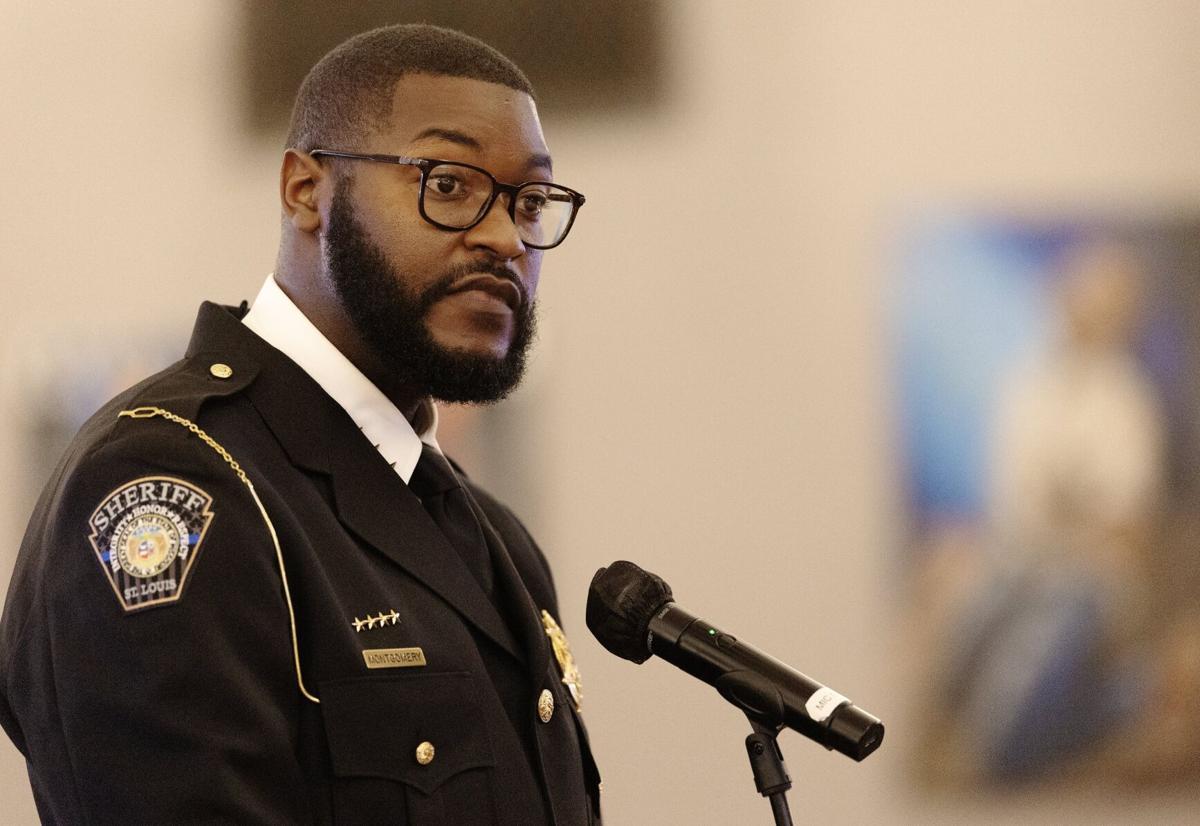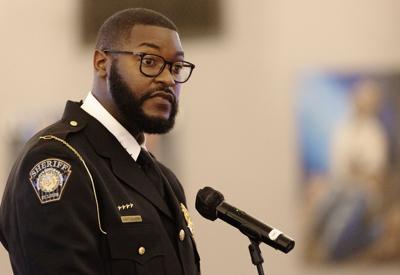ST. LOUIS — Lawyers for the city and its sheriff traded legal jabs in court Wednesday in a fight over whether a new ordinance can force Sheriff Alfred Montgomery's office to transport jail inmates to appointments and justify its expenses to the city comptroller.
Montgomery's lawyers said the law was an unfunded mandate that threatened public safety. The sheriff's office doesn't have enough staff to ferry downtown jail inmates to the hospital for emergency procedures, lawyer David Mason said, and doing so would jeopardize critical functions like courthouse security and serving legal papers.
"There are not enough sheriffs available," Mason said.
The city asked Judge Joan Moriarty to force the sheriff's office to comply. The downtown City Justice Center is losing burnt out corrections officers by the day, said the jail's Deputy Commissioner Tammy Ross, creating staffing shortages that cause inmates to be locked in their cells with fewer opportunities to leave, shower or use the phone.
People are also reading…
"They have behavior issues," she said. "It's important they have time out of their cells."
The arguments came two days after Mayor Cara Spencer signed a law designed to address two issues raised by aldermen since Montgomery took office in January: His office's repeated refusal to take inmates from the city jail to the hospital and a string of questionable purchases he has made, including new badges, golf carts, new uniforms, a Chevrolet Tahoe and surveillance robots.
On Monday, Montgomery sued the city seeking to block the law. His suit argues that only the legislature has the power to make him do anything, and it's the city's job — not his — to worry about inmate medical care.
Montgomery also asked a judge to stop the city from enforcing the new ordinance while his lawsuit is pending.
The city requested the judge enforce the ordinance in the meantime.
On Monday, three witnesses — Ross, former Sheriff Vernon Betts and Montgomery's top deputy, Col. Yosef Yasharahla — took the stand to testify about the potential ramifications.
For decades, the sheriff's office has taken on the brunt of prisoner medical transport. Betts said in an interview outside the courthouse that he considered it one of the office's most important duties since people's health was at risk. And Yasharahla, who has worked for the sheriff's office for more than 30 years, said Betts' predecessor, Jim Murphy, had an entire unit dedicated to jail transport.
But Yasharahla said his boss, Montgomery, made it a campaign priority to secure the city's downtown and juvenile courthouses after judges, frustrated with a lack of security, threatened to hire their own bailiffs during Betts' administration.
Fully staffing the courtrooms means fewer people available for transport, Yasharahla said, and two weeks ago, he enshrined that policy in an email to jail officials. The subject line said the office was implementing a new policy: deputies would take inmates to medical appointments scheduled at least two weeks out. The jail would have to figure out a way to transport people in emergencies.
Ross said that has been a grind. As of Wednesday, the City Justice Center had 75 of its 133 corrections officer positions filled — down from 93 on Sept. 1.
In order to staff medical transports, she said she's been doubling up on the amount of people guards are watching and calling people who are off the clock to come in.
"It affects overall operations of the facility," she said.Â
Mason was not sympathetic.
"All they have to do is hire for the positions they have," he said.
Moriarty will make a decision on their requests at a later date.Â
















